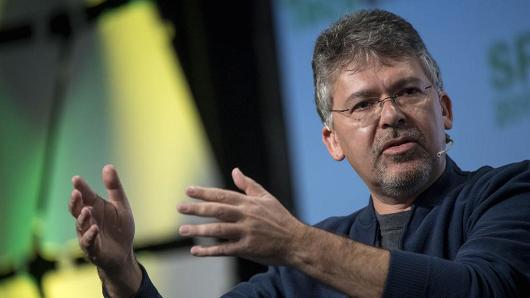- Apple has hired John Giannandrea who formerly served as Google’s head of AI and Search.
- Given the industry’s shortage of AI talent, Giannandrea brings expertise along with credibility, critical in recruiting.
- Giannandrea will likely be working on AI-powered interfaces that will replace the touchscreen and iOS, like augmented reality wearable. Separately, AI related to Apple’s self-driving car program (PAIL) will likely fall under Giannandrea.

What this means for Apple, recruiting more AI talent. It’s a win. Talent follows talent, and John Giannandrea will no doubt help to build Apple’s AI brand and enhance future recruiting efforts. His shared vision on privacy is good news for a company who claims to be the vanguard of user security. In the meantime, Google will maintain its strength in AI, given they are still an “AI first company” and have tremendous AI and deep learning horsepower with their Google Brain and DeepMind teams. Jeff Dean, the founder of Google Brain, has taken over as the head of their AI department in a “reshuffling” making AI a more central part of their business. Will Google employees follow in Giannandrea’s footsteps? There will probably be a few, but the competition is fierce, and this will not be the last major AI trade.
Why did Giannandrea come to Apple? Most likely – projects, pay, and privacy. As one of the most senior experts in arguably the most in-demand field in the world, the conversation around compensation was probably short. Giannandrea may be given freedom to work on projects he is more passionate about and have the chance to build something new. In an email obtained by the New York Times, Cook praised Giannandrea saying, “John shares our commitment to privacy and our thoughtful approach as we make computers even smarter and more personal. Our technology must be infused with the values we all hold dear.” That affinity for privacy may have steered him to Apple at a time when concerns have never been higher.
What will he do? It’s easy to think about how Google uses AI (search, image rec., voice, etc.) but Apple’s use cases are more abstract. If you consider the user interfaces that will replace the touchscreen and iOS, like augmented reality wearables, it becomes more clear why AI is critical. Just as multi-touch was a core technology enabling the iPhone, AI will be a core technology enabling the operating systems of the future. For example, wearables like AR glasses or even AirPods will heavily rely on AI-driven functionality like image recognition, ambient listening, and smart notifications. In other words, these devices need to know what you want and when you want it. With our phones, we directly control the information that we want when we want it; in the future of computing, AI will anticipate the same information. We expect Giannandrea to address these opportunities as well as bolster Apple’s overall AI prowess, overseeing AI initiatives like Siri, Core ML, and the deliberately under-the-radar autonomy project.
Disclaimer: We actively write about the themes in which we invest: artificial intelligence, robotics, virtual reality, and augmented reality. From time to time, we will write about companies that are in our portfolio. Content on this site including opinions on specific themes in technology, market estimates, and estimates and commentary regarding publicly traded or private companies is not intended for use in making investment decisions. We hold no obligation to update any of our projections. We express no warranties about any estimates or opinions we make.